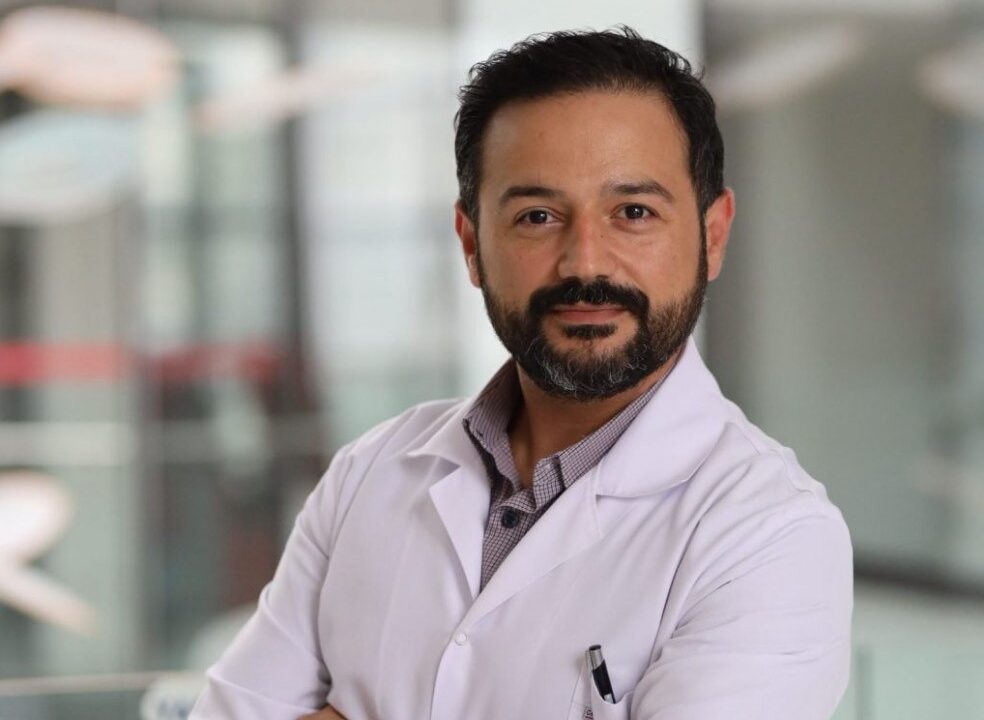In 2021, the number of people with diabetes worldwide reached 537 million, breaking a historical record.
According to projections, 643 million people will struggle with diabetes in 2030 and 783 million people in 2045. This situation can almost be described as the ‘Great Diabetes Pandemic’. Diabetes, which causes 6.7 million deaths a year, kills one person every 5 seconds worldwide. Specialist from Kadıköy Hospital Dr. Ferhat Çetin answers frequently asked questions about diabetes.
According to research, one in every ten people in the world is diabetic. Diabetes is a disease that occurs in a genetically predisposed individual, triggered by lifestyle-related external factors. Nutritional errors and a sedentary lifestyle are among the factors that trigger the disease. Genetic background, childhood nutrition, accompanying medical conditions and age are also shown to be among the factors that increase the risk of disease.
Who is in the risk group?
Specialist Dr. Ferhat Çetin, one of the doctors of NB Kadıköy Hospital, which was established as a non-profit hospital of the Turkish Diabetes Association with the mission of providing health services to the society, stated that the risk of type 2 diabetes increases with age and said, “Although it is known that the risk increases especially after the age of 45, some authorities recommend starting screening for diabetes over the age of 35. Being overweight is an important risk factor; those who are 20 percent over their ideal weight have an increased risk of diabetes. Those who have a family history of diabetes and those who have previously been diagnosed with impaired fasting blood sugar, insulin resistance, polycystic ovary syndrome, hypertension and high cholesterol also have an increased risk of developing diabetes. Those who had gestational diabetes in their previous pregnancy and mothers who have given birth to a baby weighing more than 4 kilos have a higher risk of diabetes in later life. In addition, a sedentary lifestyle, various drug treatments, and some other endocrine diseases and disorders may also increase the risk of diabetes.”
What are the symptoms of diabetes?
Sharing insights about the typical initial symptoms of diabetes, Çetin said, “The most common symptom of high blood sugar is the absence of any symptoms. One in ten people in the world is diabetic, and for every person who knows they have diabetes, there is another person who is unaware that their blood sugar is high. The initial symptoms of diabetes occur when increased blood sugar leaks into the urine. In addition to general complaints such as weakness and fatigue, frequent urination and waking up to urinate may occur due to the sugar in the urine attracting water. This lost water leads to excessive thirst and excessive drinking. Increased urine volume may, although rare, cause urinary incontinence. While sudden weight loss despite increased appetite is seen in childhood type 1 diabetes, gradual weight gain with excess fat in the trunk and abdomen is typical for type 2 diabetes in adults. Muscle weakness, laziness in the intestines, visual defects, dry mouth, excessive thirst, frequent urination, easy infection, delayed wound healing, abnormal fat and weight changes are some symptoms of the disease.”
What should patients pay attention to?
Pointing out the importance of a personalized nutrition plan, Specialist Dr. Ferhat Çetin said, “It should not be forgotten that every individual has rights and wrongs about nutrition, and personal preferences, past experiences, weaknesses and resistances should be taken into consideration when making a nutrition plan. As a general rule, it is low in simple sugars that mix quickly into the blood; Trays rich in whole grains, vegetables, vegetable and animal proteins should be preferred. Fibers, which slow down the absorption of carbohydrates from food and are beneficial for the digestive system, should be consumed in appropriate amounts. Refined sugars, ready-made foods, fast food products and chemical additives are not recommended. If necessary, calorie restriction may be required for those who are overweight, and salt restriction may be required for those with cardiovascular and kidney diseases. For a personalized nutrition plan, advice should only be sought from the attending physician and a licensed nutrition and diet specialist.”
What are the latest developments in the diagnosis and treatment of the disease?
Stating that there have been great changes in the diagnosis and treatment of diabetes in recent years, Çetin said, “We are more successful in blood sugar control thanks to many new drugs that have come into use in the last 10 years. Side effects such as low blood sugar and weight gain, which are common in old treatment methods, have also decreased. New treatment agents have proven their effectiveness not only in regulating blood sugar but also in preventing diabetes-related complications. It is now possible to stop or even reverse the progression of conditions such as cardiovascular diseases and diabetes-related kidney and eye damage by intervening at very early stages. The most important innovation that developing technology has brought to diabetes is the development of pump systems that continuously deliver insulin and sensor systems that can continuously measure blood sugar. Thanks to new artificial intelligence-mediated insulin pumps, the risk of low and high blood sugar is minimized in this system, where the insulin delivery rate is automatically increased or decreased according to current blood sugar levels. These innovations have improved the daily life quality of type 1 diabetics, for whom using external insulin is vital, and have almost eliminated diabetes-related restrictions in work and social life.”
NB Kadıköy Hospital follows the developments in the world closely
Providing information about the studies carried out in the field of diabetes within the institution, Specialist Dr. Ferhat Çetin said, “At NB Kadıköy Hospital Diabetes Technologies Center, state-of-the-art sensor and insulin pump systems used in blood sugar monitoring and treatment are applied under the leadership of specialist physicians. Approximately half of the artificial intelligence-mediated insulin pumps applied to adults in Turkey in 2023 were implemented in our Diabetes Technologies Center. Thanks to this technology, blood sugar levels within the target range in Type 1 diabetics can rise above 90 percent in many cases. These experiences on adult diabetes technologies are transferred to our new colleagues being trained in universities and training and research hospitals across the country through various courses, workshops and seminars, contributing to the widespread use of technology throughout the country.”




